2012 Midwest Composers Symposium
A consortium of composers from the
Universities of Indiana, Iowa, Michigan and
Cincinnati Conservatory of Music
Hosted by the University of Iowa
Center for New Music
David Gompper, director
CONCERT II
Saturday, November 3, from 10:30 to 12.30
University Capitol Center Recital Hall (map)
|| download program ||
Program
| Sounds of Night for string quartet (2011) | Leonid IOGANSEN (UI) (b. 1981) |
|
| Leonid Iogansen, violin 1 Andrew Uhe, violin 2 Manuel Tábora, viola Yoojung Chang, violoncello Chun-Ming Chen, conductor |
||
| Breakfast for Dinner for marimba duet (2012) | Drew DOLAN (CCM) (b. 1983) |
|
| Drew Dolan & Carrie Magin, marimba | ||
| ismriy for flute and electronics (2012) | Dan FRANTZ (UI) (b. 1986) |
|
| Amanda Lyon, flute | ||
| Beginning for violin duo (2011) | Mirae HWANG (CCM) (b. 1985) |
|
| Sooji Kim & Jiyong Atkinson, violins | ||
| Resistance is Futile (2012) for violin and electronics |
Daniel Joseph SOTTILE (UM) (b. 1993) | |
| Daniel Sottile, violin | ||
| Angelus Novus II for solo flute (2012) | Brian PENKROT (UI) (b. 1978) |
|
| Nora Epping, flute | ||
| A Divisive Dichotomy (2012) | Will HUFF (UI) (b. 1986) |
|
| Shelby Kifer, trombone | ||
| 3 Duos (2011) Prelude Ballad Hocket |
Nicholas CLINE (IU) (b. 1985) |
|
| Sophie Bird & Eric Auerbach, violins | ||
| Shipbreaking for alto saxophone and live electronics (2011) |
Benjamin D. TAYLOR (IU) (b. 1983) |
|
| Corey Dundee, alto saxophone | ||
| Sonata for viola solo (2012) | Jun-Yi CHOW (IU) (b. 1987) |
|
| Sekyeong Cheon, viola | ||
| Amalgamations for piano and electronics (2008, rev. 2011) |
Bret BOHMAN (UM) (b. 1982) |
|
| Bret Bohman, piano | ||
| Fourth Stream Chronologies (2012) | Matt SMART (UI) (b. 1978) |
|
| Marjorie Shearer & Lisa Wissenberg, clarinets Ryan Smith & Elena Pedersen, saxophones Andrew Theirauf & Tyler Swick, percussion Matt Smart, piano Manuel Tábora, electric bass Chun-Ming Chen, conductor |
Program Notes
Leonid IOGANSEN
Sounds of Night
Originally Inspired by the nightlife of Iowa City, the piece strives to describe an array of sounds and impressions that a night can offer, from the sounds of popular tunes coming from the local bars to the sounds of wind. The work calls for the violins to be retuned to microtonal tunings, to add an air of exoticism to the piece. Violins are retuned not according to any specific system, but rather to achieve an acoustically pleasing sound.
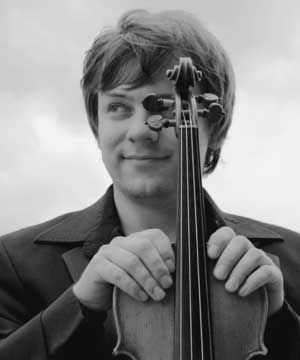
Leonid Iogansen was born in St. Petersburg Russia in 1981. He has received various commissions, most notably in 2006, from Shuang Yin International Music Festival, which has commissioned him a total of an hour of music for various ensembles. Leonid holds a Summa cum laude Bachelors of Music in violin and composition from Boston University, where he was a Trustee Scholar in 2001-2003, and a Masters degree with the same majors from Peabody Conservatory. Leonid is currently pursuing PhD in Composition at the University of Iowa as a student of Prof. David Gompper.
Drew DOLAN
Breakfast for Dinner
was composed for two marimbists to play on a single instrument. Over course of this short piece, the individual marimba parts strike a balance between leading the duo, imitating the other, and maintaining individual roles. There is no significance to the title; the idea of breakfast for dinner is just always hard to turn down.
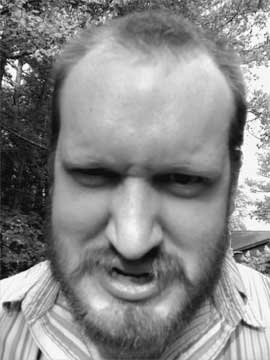
Drew Dolan is currently pursuing doctoral studies at the University of Cincinnati, studying with Dr. Joel Hoffman. In 2008, Dolan completed graduate studies at Bowling Green State University; he holds a Bachelor of Music degree from Georgia State University. Dolan has received performances from the Hodges-Taylor Ensemble, the Dubuque Symphony Orchestra Chamber Ensemble, neoPhonia, and percussion ensembles at Kennesaw State University, Columbus State University, and Brevard College. A committed teacher, he has taught courses in Music Theory and World Music at Kennesaw State University; he currently teaches a course on 20th Century Music and Politics for the University of Cincinnati.
Dan FRANTZ
ismriy for flute and electronics
makes use of PureData to analyze the sound of the flautist. It creates a web of sound using this analysis, based on the pitches and timbres created by the flute. The events created by the software are random in their timing and content, but follow a general morphology over the course of the piece.
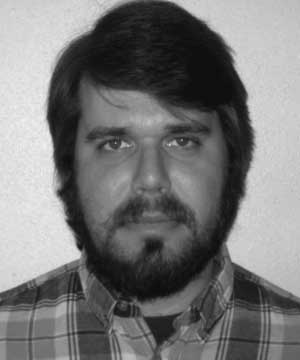
Dan Frantz received his BM in music composition and electronic music from the University of South Florida. There he studied with Paul Reller and Michael Timpson. He was awarded the Patrick Keim Memorial scholarship for composition in 2007, and received a talent grant for clarinet performance. He is currently pursuing his MA in composition at the University of Iowa.
Mirae HWANG
Beginning
This piece consists of typical three sections, A-B-A'. The A section begins with open strings and they are developed by expanding their range to the climax based on homophonic texture. The B section is a slow part which includes chromatic melodies proceeding to A' section. Returning to A' section, the coda comes with brilliant passage to the end.
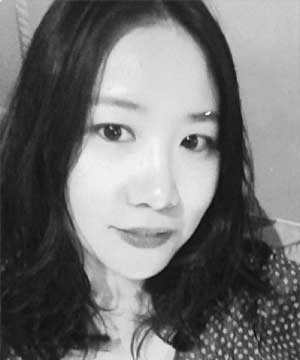
Composer Mirae Hwang is now pursuing a Master's Degree from College-Conservatory of Music, University of Cincinnati. She has obtained Bachelor's Degree in composition from Seoul National University. In Korea, She was the winner from 4th Eumyeon Composition Competition in 2008. She attended Graduate Certificate in Musical Theater Writing from Korea National University of Arts. Her musical The King of Plagiarism awarded as the Top 6 musical at the 4th Daegu International Musical Festival and performed in Seoul and Ballerina Girl, Anna was selected again at the 6th Daegu International Musical Festival in 2011.
Daniel Joseph SOTTILE
Resistance is Futile
is a programmatic piece that symbolically represents the Borg, a fictional race of technologically enhanced aliens bent on assimilating other cultures into their collective, often destroying entire cultures in the process, seen throughout Star Trek. Throughout the piece, clips from various Star Trek television series and movies give the audience members who have not seen the show an idea of what the Borg are, and for those who have, a chilling reminder of the atrocity that is the Borg. This piece focuses on the dehumanizing aspect of the Borg, as the subject is first assimilated (a process explained in the piece) and then becomes gradually less human and more machine-like, until all of his or her humanity is lost, and all that is left is the single, unified thought of the Borg Collective.
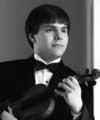
Daniel Joseph Sottile was born on March 27th, 1993 in Cleveland, Ohio, but has spent his entire life living in Oxford, Michigan. Daniel Sottile is currently a first year student in the School of Music at the University of Michigan in the BM Composition program, currently studying under professor Michael Daugherty, with a concentration in violin. Sottile began his musical training at the age of seven on the violin, and began amateur composition at the age of ten. From that time, along with playing the violin, Sottile also plays other various brass instruments, including the trumpet, french horn, baritone, and tuba. Daniel was accepted to the University of Michigan in the LSA honors program in the fall of 2011, but in failing to make the School of Music for Violin performance, re-auditioned the following year, this time for composition as well, and was subsequently accepted into the School of Music for composition. Sottile's works are inspired by both contemporary American composers, such as John Williams and Michael Daugherty, and of romantic era Russian and Italian composers, such as Tchaikovsky and Respighi.
Brian PENKROT
Angelus Novus II
'Angelus Novus' shows an angel looking as though he is about to move away from something he is fixedly contemplating. His eyes are staring, his mouth is open, his wings are spread. This is how one pictures the angel of history. His face is turned toward the past. Where we perceive a chain of events, he sees one single catastrophe which keeps piling wreckage upon wreckage and hurls it in front of his feet. The angel would like to stay, awaken the dead, and make whole what has been smashed. But a storm is blowing from Paradise; it has got caught in his wings with such violence that the angel can no longer close them. This storm irresistibly propels him into the future to which his back is turned, while the pile of debris before him grows skyward. This storm is what we call progress. —Walter Benjamin
My intention in Angelus Novus II is to juxtapose elements, signifying the shift in conception from pitched based to sound based. Traditional ideals of melody, pulse, and technique are contrasted with more modern notions of clarity/noise, relative timing, and extended techniques. Instead of being perceived as disparate elements, they are presented in a fluid and tiered manner, fading in and out of one another, as one would experience an event at various degrees of proximity.
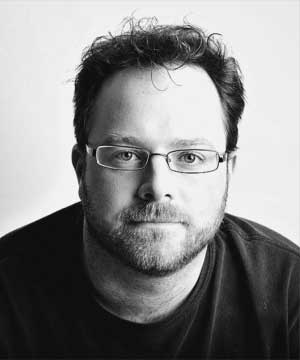
Brian Penkrot's music has been performed throughout the US, Asia, and Europe, including the La Pietra Forum and the SCI National Conference. Brian has attended numerous festivals and has had works performed by ensembles including ICE and ECCE.
Brian is pursuing his PhD at the University of Iowa, where he studies with David Gompper. Brian is the SCI Iowa chapter president and teaches music theory at the Preucil School. He is also the business manager for Melos Music. Brian has his MM from UNLV and BM from Columbia College Chicago. His works and audio samples can be found at www.brianpenkrot.com.
Will HUFF
A Divisive Dichotomy
Did you know it's an election year? This piece received its premier at the Eastern Trombone Workshop in 2012, which is held annually just across the Potomac from this nation's Capitol. Inspired by the location of the event, I wrote this piece with two opposing ideas in mind. One might be considered more conservative while the other more liberal.
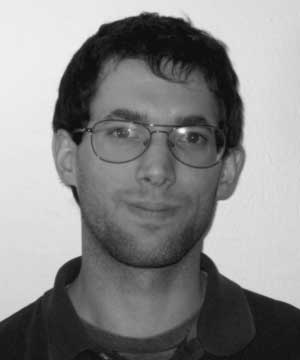
Will Huff holds a B.M. summa cum laude at the University of Arkansas (2008) and a M.M. at Butler University (2010). His commissions range from pieces written for friends to the Fort Smith Symphony (director, John Jeter). His most recent success includes the premier of his solo trombone piece, A Divisive Dichotomy, in Fort Myer, Virginia at the Eastern Trombone Workshop this past March. He has participated in ensembles devoted to new music including the JCFA Composer's Orchestra, Ensemble 48, and the Outside Orchestra all based out of Indianapolis. After graduating from Butler, Will Huff moved to Chicago where he worked at the Chicago Symphony Orchestra and played in the band Bricklayer's Foundation. Will Huff is currently pursuing a doctorate at the University of Iowa where he holds a TA in Theory/Composition as well as graduate assistant to the Electronic Music Studios directed by Lawrence Fritts. His composition teachers have included Robert Mueller, Frank Felice, Michael Schelle, Lawrence Fritts, and David Gompper.
Nicholas CLINE
3 Duos
These brief duets are selections from a larger set (in progress) modeled on Ligeti's Musica ricercata. Prelude, Ballad, and Hocket represent the second, eighth, and third pieces, respectively. Each piece explores a particular sound world through allusion and quotation. An over-arching goal in composing this set has been to find subtle ways of maximizing the violin's sonic potential. I am deeply grateful to Sophie and Eric for lending their artistry and hard work in making this performance possible.
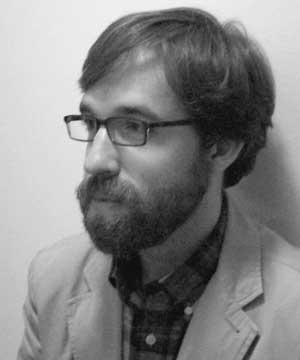
Nicholas Cline (b. 1985) is a composer of acoustic and electroacoustic music. His compositions have been performed in the US, Italy, and Ireland; his collaborative film works have been screened at prestigious festivals around the world. He was recently named a 2011 ASCAP/Morton Gould Young Composer Finalist. He previously studied at Columbia College Chicago and is currently pursuing a M.M. in Composition at Indiana University. His principle teachers include Aaron Travers, Don Freund, Jeffery Hass, John Gibson, Ilya Levinson, and Sebastian Huydts.
Benjamin D. TAYLOR
Shipbreaking
The life expectancy of any large sea vessel is about twenty years. After that time, the rising costs of maintenance and insurance make the ship unprofitable. So where do ships go to die? To the beaches of Chittagong, Bangladesh, where laborers working for iron recycling companies such as PHP (Peace, Happiness, Prosperity) dismantle the giant ships almost entirely by hand. There are no cranes, no lifts, no scaffolding, no hardhats, no jack hammers; just blowtorches and many human hands. This is a powerful example of accomplishing a monumental task with very simple means. The cutters (those with blow torches) literally cut the ship into large pieces which are then carried on the shoulders of twenty men to nearby trucks. This composition reflects musically on the wonderment of shipbreaking, specifically as portrayed in the photography of Edward Burtynsky. The electronic sounds are derived from recordings of metal: banging, scraping, clanging, grinding, sawing, dropping, hammering, and cutting metal pieces of a variety of shapes and sizes. The intersection of the saxophone and metallic sounds is explored through the use of extended techniques including slap tonguing, altissimo, and multiphonics.
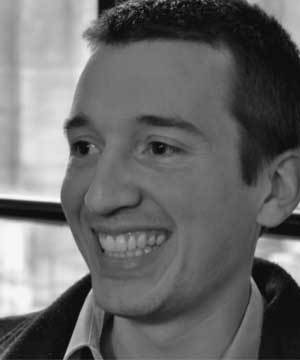
The music of composer Benjamin Taylor has been performed at major music festivals in the United States and abroad including the SEAMUS National Conference, SCI National Conference, Noisefloor Festival (UK), Electronic Music Midwest, and international jazz festivals in Edinburgh, Wigan, Marlborough and Birmingham. Having recently been selected as a participant in the 2012 ACO Underwood Reading Session, Mr. Taylor's prizes and honors include a 2011 Barlow Endowment Commission, and a 2011 BMI Student Composers Award. He currently studies with Don Freund, Claude Baker, Jeffrey Hass, and John Gibson.
Jun-Yi CHOW
Sonata for viola solo
is developed in two sections, which conflicts with each other, first by using the possibilities of harmonic to create the naïve and sparkling emotion while the second is full of running notes to create the aggressive and chaos emotion.
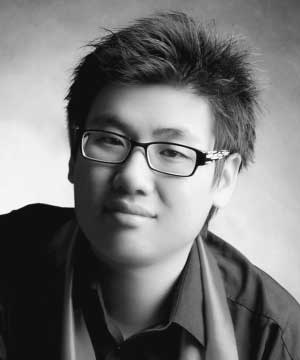
Born and raised in Kuala Lumpur, Malaysia, Chow Jun-Yi started studying the piano and music theory at the age of 5. In 2005, Chow gained admittance into Central Conservatory of Music, Beijing and received tutelage from WenChen Qin, Gang Chen and JianPing Tang. After graduating in 2011, Chow is working on a MA degree at the Jacobs School of Music, Indiana University under P.Q. Phan.
Bret BOHMAN
Amalgamations
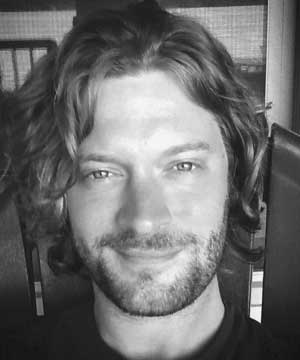
Bret Bohman (b. 1982) grew up in Rochester, New York and now lives in Ann Arbor, Michigan. Mr. Bohman's compositions have been heard throughout the United States at various venues including the Aspen Music Festival and School, the SCI National Conference, SEAMUS, Electronic Music Midwest, the Society for New Music, Vision of Sound, the 3rd Annual TUTTI Festival, the Heidelberg Festival and more. Recent awards and honors include the New York Federations of Music Club's Brian Israel Award, the Fifth International Robert Avalon Prize and an award from the Michigan Music Teachers Association. Mr. Bohman has received degrees in composition from Heidelberg University and the University of Michigan. Currently, he is pursuing a Doctoral of Musical Arts at the University of Michigan in Ann Arbor. His primary teachers have included Michael Daugherty, Bright Sheng, Evan Chambers, Brian Bevelander and Mark Olivieri. He currently studies with Paul Schoenfield.
Matt SMART
Fourth Stream Chronologies
Ebullient and pulse-driven, Fourth Stream Chronlogies explores time - fast time, contracted time, layered time, and static time. Meter is implied then disguised throughout, culminating in several spots as quadra-meter - a polymeter with four distinct layers. Sprinkled here and there are unusual sounds such as a Marimba and Electric Bass duet as well as the lone hi-hat aiding not only in time management but proclaiming its own virtuosic, quasi-improvisatory voice into the milieu. The piece borrows unabashedly from well-established styles of music.
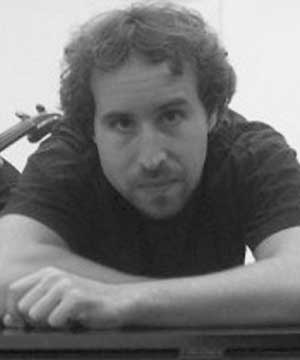
Matt Smart is a doctoral candidate in music composition at the University of Iowa. Current and past composition instructors include Tom Flaherty, Frank Felice, Michael Schelle, David Gompper, Lawrence Fritts. Matt received his B.A. from Pomona College and M.M. from Butler University where he was co-founder of the experimental new music group Ensemble 48. Matt's compositions have been performed by touring ensembles in China, Hong Kong, and Brazil as well as domestically. Before adopting composition full-time, Matt had musically directed over twenty theatrical productions, conducted dozens of ensembles and toured internationally as a pianist.